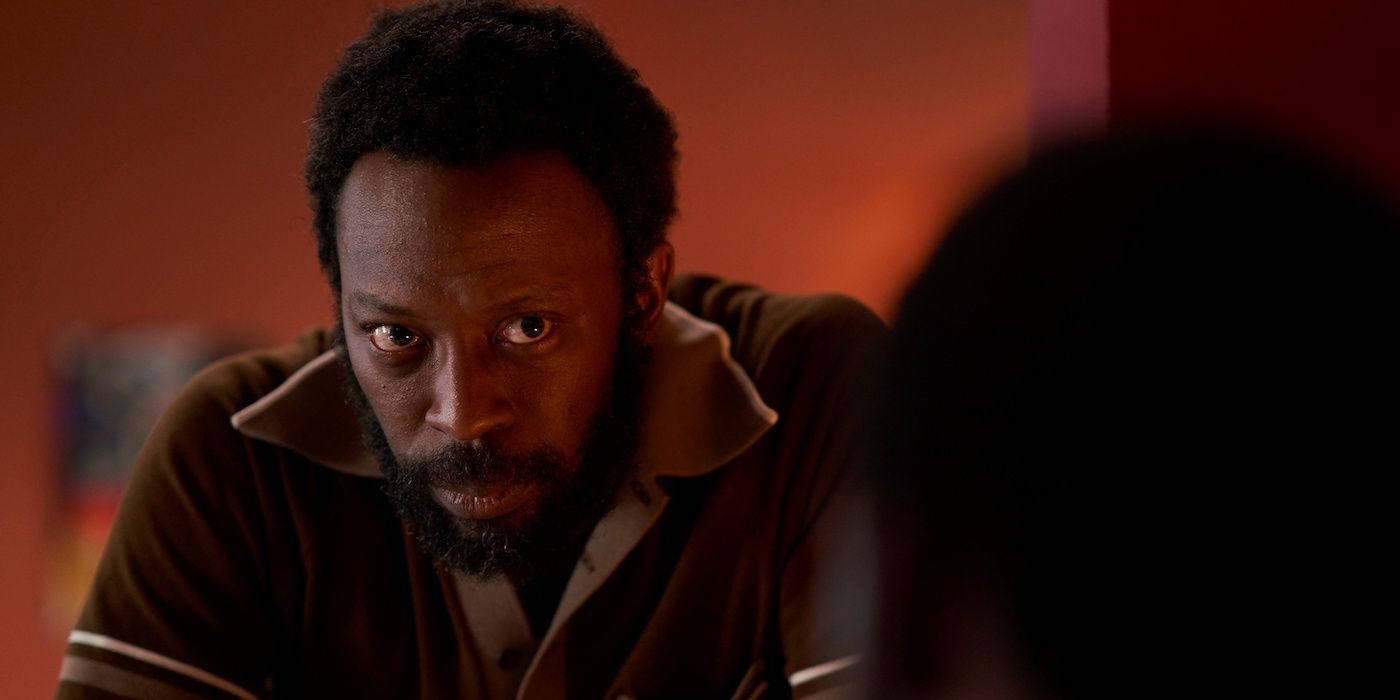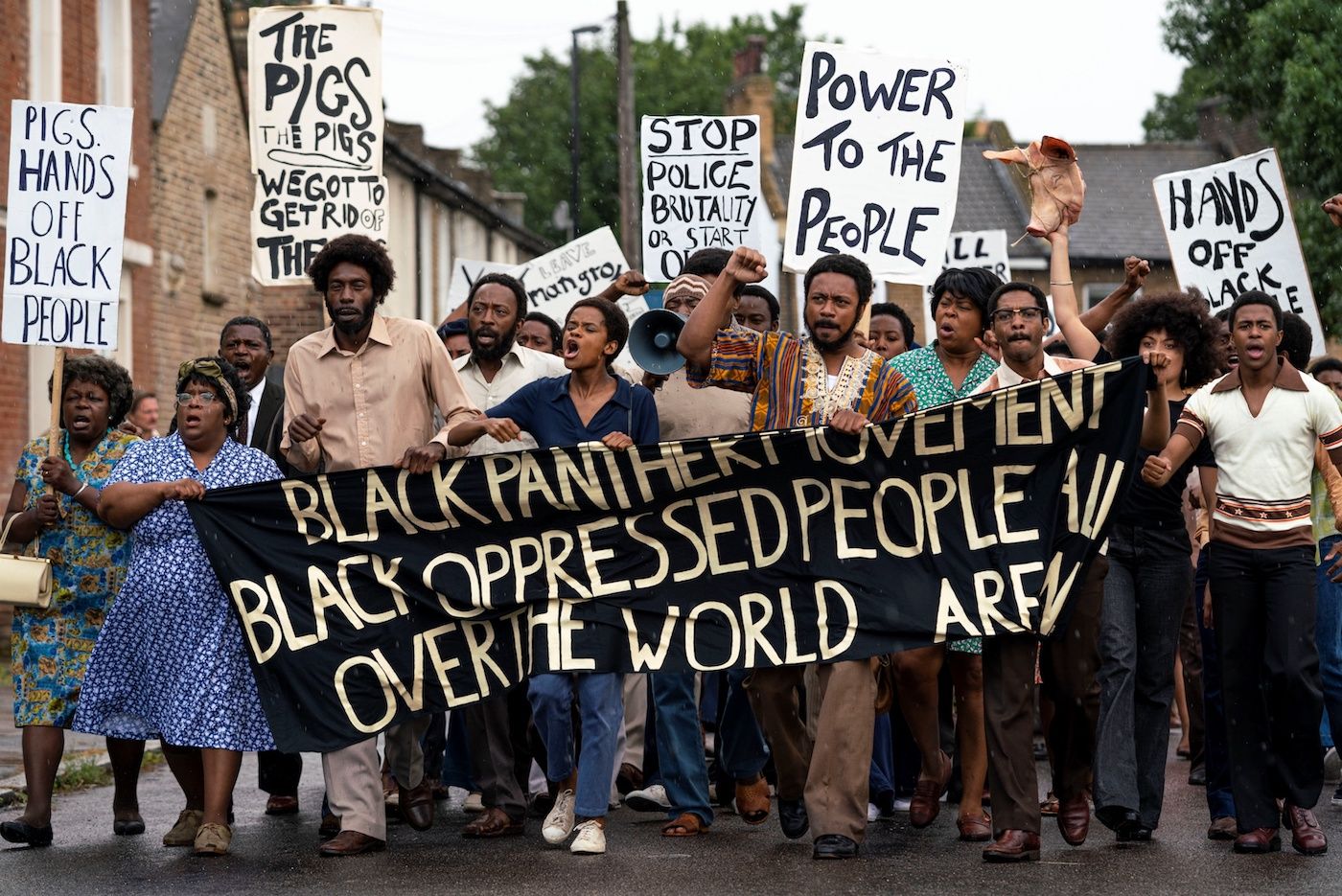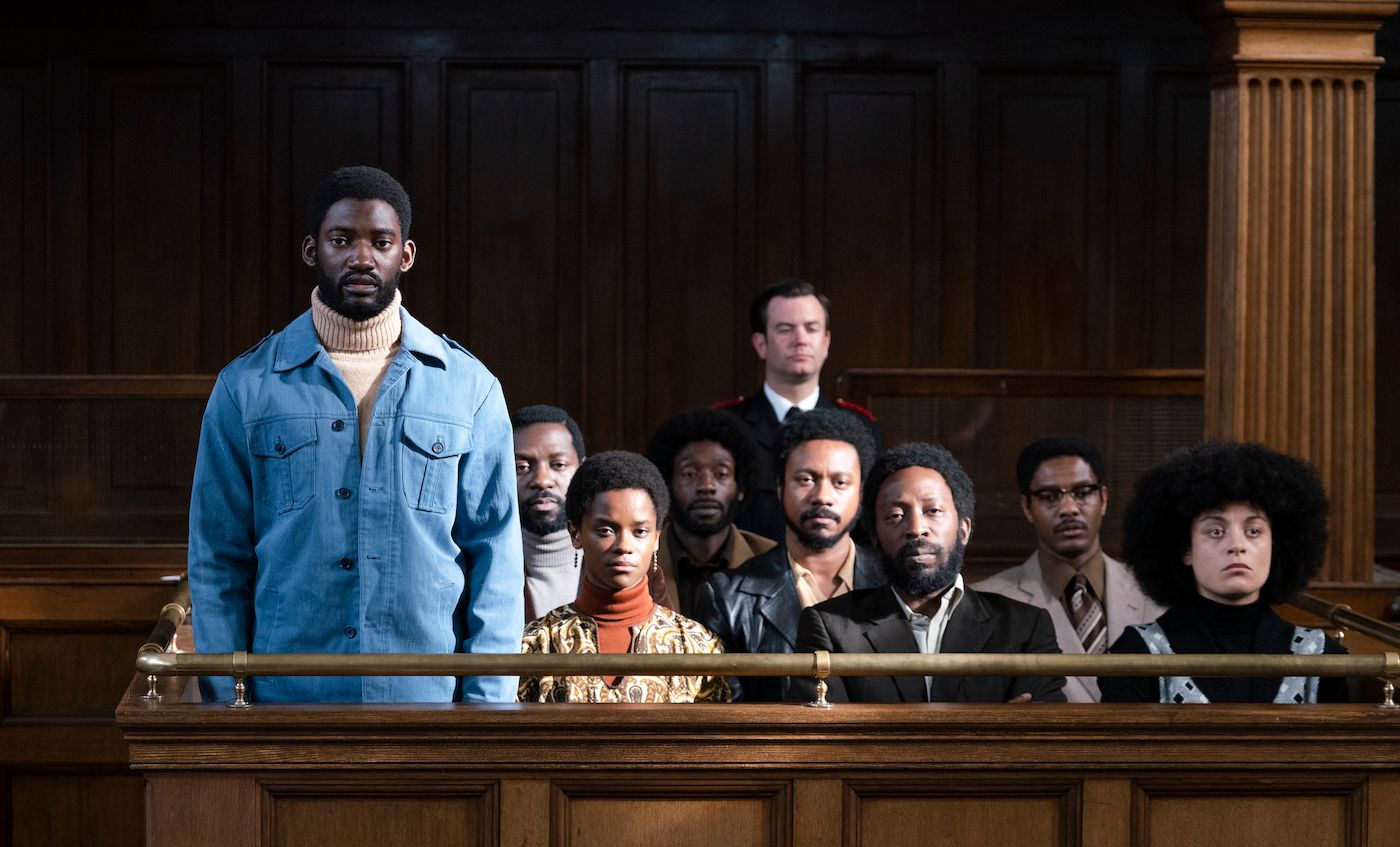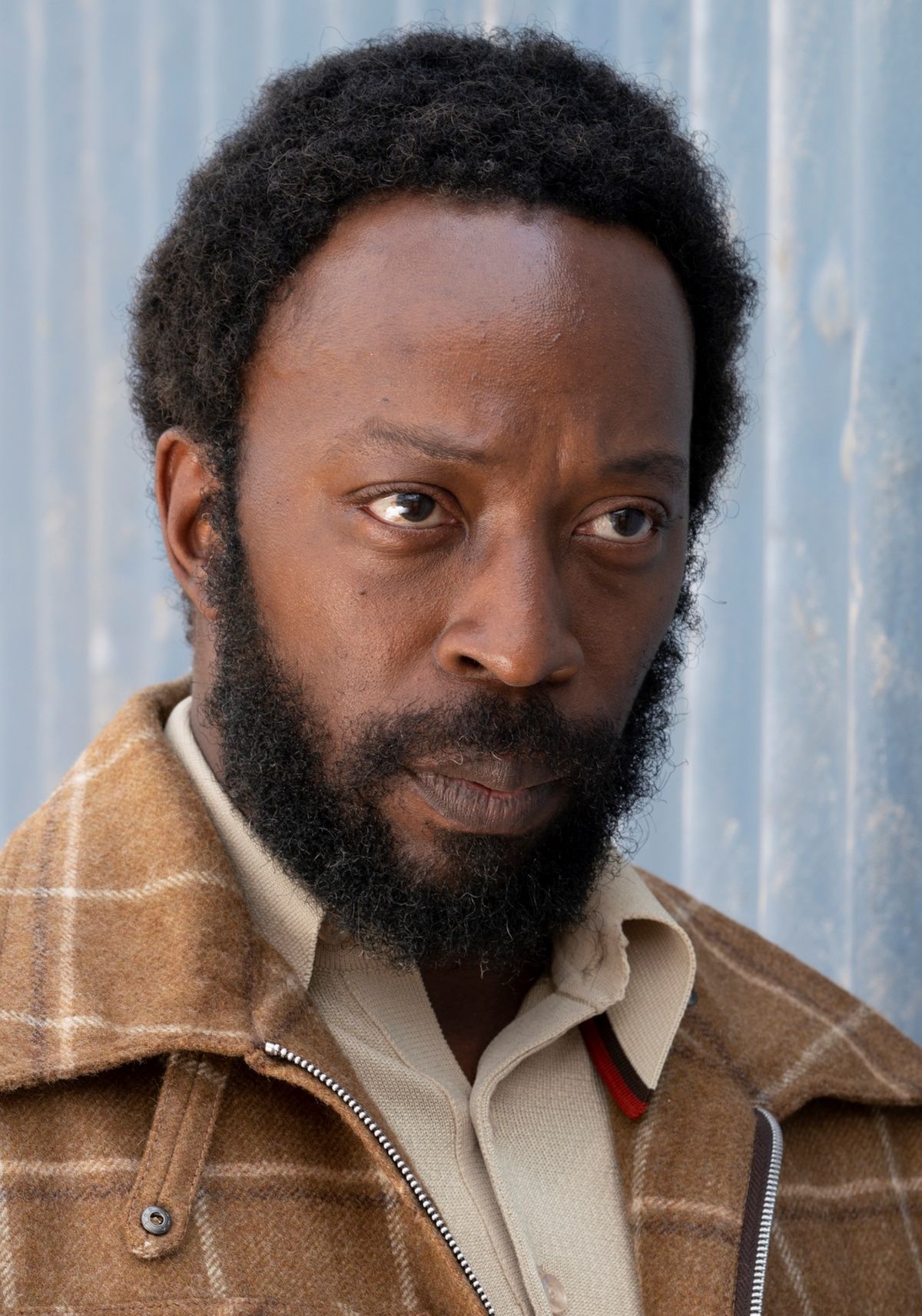Part of the Small Axe anthology series from director Steve McQueen, the deeply moving drama "Mangrove" tells the true story of The Mangrove Nine, a group of men and women who were wrongly arrested and charged with inciting a riot, after clashing with London police in 1970. While Frank Crichlow (Shaun Parkes) was just trying to run his West Indian restaurant, the Metropolitan Police had other plans, with their relentless raids and blatant racial discrimination that led to a highly publicized trial.
During the virtual junket, Collider got the opportunity to chat 1-on-1 with Parkes about how it was important to him that everyone involved cared about telling this story, why he feels the world doesn’t really know London as well as it thinks it does, the weight of his final courtroom scene, and why something as small as an apology can speak volumes.
COLLIDER: When this came your way, what got you most excited about it? Was it how sharply written the script is, was it the opportunity to tell a story like this, or was it simply to work with Steve McQueen?
SHAUN PARKES: Steve McQueen adds credence. Usually, I’m not that bothered about what you’ve won. I don’t care. I’m not really worried about that. It’s more, "Do you care about this piece?"
From the beginning, the BBC cared, Amazon cared, therefore the people that they got involved really cared, therefore the actors and the crew and the make-up and the costume really cared. Everyone cared, all the way down to us lowly actors who also cared. What did they care about? What am I talking about? Well, it’s a real story about real subject matter that really happened in London. The world doesn’t really know London, as much as the world would say that it did. When you go to people and talk about England, they’re like, "Yeah, Tony Blair, Margaret Thatcher and Churchill, man." And you’re like, "Yeah, London’s a little bit more than that, mate."
You realize that it’s not their fault, though, that they don’t know. The point is we don’t put that much out, when it comes to real stories for the world to know. Right now, what have we got? We’ve got a real story that really happened. There was drama. It’s one of those, "Really? Did that happen?" I like being a part of those productions. I love being a part of something that actually happened. I’ve loved being a part of those things in the past. There haven’t been many, but one or two. The other thing that I’ve noticed is that those things have a longevity. What I’ve noticed about my career, with the things that I’ve done that were very real and happening right now, funnily enough, these things have lasted 20 years and people come up to me and go, "Oh, that thing...," as opposed to some of the things where it’s fake and not very real, but it’s entertaining. There are many levels as to why I loved doing this role but that turns me on first, without anything else needing to be there. Then you get the idea that someone like Steve McQueen’s doing it and you’re like, "Steve McQueen is doing it? Oh, he cares, as well. This really does seem like it’s gonna be a good thing. And the BBC are really going for it."
It seems as though any one of these films that Steve McQueen made for the Small Axe anthology would have been exceptional work on their own and he went and made five of them that he’s releasing. Having worked with him, how did he do it?
PARKES: He’s a creative. How does he do it? There are many writer/directors on this planet, a few of which I’ve worked with, who have made films that represent their heritage. I can think of five straightaway who have made, with either writing or directing or both, films that represent their childhood, their heritage, their ancestry, and all of the stories they know, that their parents told them and their grandparents told them, and that they saw growing up in the streets.
How did he do it? He did it by resting on those laurels, by leaning on that understanding, by summoning up the stories of the past that he already knew because he had them in his blood, and by wanting to represent something that seemingly hasn’t really been represented before on such a scale, specifically in England. I know it’s happened in America and all over the world, but in terms of England, no one has seen anything like this. I know they haven’t because I’m aware. They may have seen films like Babylon, which are amazing films, but in this era, right now, we haven’t had a story like this. I know that if I say to America, "What was the last film you saw that talks about the streets of England," they’ll be like, "Well, uh... ," and that would be it. It’s not their fault. I’m not blaming anyone. It’s because we haven’t put anything out for anyone’s to see until now. This is a start, hopefully, and long may it continue.
The moment at the end of this, where you’re standing in the courtroom, listening to the verdicts, even though you aren’t saying anything, so much is passing over your face and your eyes and it feels like you’re feeling the entire movie in that moment. What was it like to really feel that and feel what it must have been like to win a battle, but know that was not the end of an ongoing war that would still continue for this man?
PARKES: Well, that’s what it felt like. Fortunately for me, I’m aware of a lot of these subject matters and the way people look at it and the anger that people have on both sides. I’m aware of the way that people become very emotional on social media, but their arguments can also be very angry. I just knew that, at some point, you needed to know the cost of all of this stuff. We can have all the movements we want them and all the political sayings, slogans, and whatever else people do in this day and age, to throw attention and light on the way things are now, but I do think the best thing has always been when people truly understand the cost of all of this stuff. What we’re talking about is abuse. I know a few people who grew up abused, and it never goes away. Even the wins fall short and are fleeting because you’re right back on it again tomorrow, possibly even worse. Black, white, yellow or brown, male or female, if you beat the police on a charge and they’re made to look stupid, it doesn’t end there, mate. There’s a cost, emotionally and soulfully. It’s important to show that, as well as all the rah-rah-rah that people throw into the mix.
The real Frank pushed for an apology from the police that he never received. Do you think that would have changed anything for him if he had gotten it?
PARKES: I think there are very smart people out there that know that human beings, even with the smallest, silly, nuanced things in life, who know that if they do apologize, it’s admitting something, and that can be a steam outlet for a situation because that thing was just about to blow. There are very smart people out there that know if you don’t have an outlet and you don’t have that little steam hole on that kettle or that pot, sooner or later, something’s gonna happen. I also know that there are people out there who all they want is an apology, not because it’s gonna make them feel better. The energy just gets dissipated slightly because we are human beings. From the playground to old age, all you ever want in an argument — as far as I know, from Shaun’s little tiny world — when you’re arguing with someone – be it a partner or whatever it might be – is to look at another person in their face, tell them about how you feel and how they made you feel, and all they want is for you to go, "Okay, I get you. Yes, you’re right about that."
That’s all anyone on the planet has ever wanted from any argument that they’ve ever had, ever in the whole history of arguments, as far as my little tiny world can tell. On those levels, because we must remember that we are human beings and not political cyborgs, it’s the small thing sometimes. We need that outlet, we need that steam, we need the hole in the kettle, and an apology does that, as small and as silly as it seems.
It just seems like such an impossible mountain to climb.
PARKES: When you’re abused, I’m not altogether sure you’re seeing the world from another perspective. If you don’t know what abuse is like, then you don’t know what abuse is like. Talk to anyone who was abused, for real – and I put this as a form of abuse – I know abused people but I can’t speak on it. When I see someone and they talk about it, they don’t talk like I do about their life and about what they would like someone to say or admit. We don’t know what that means when we haven’t been abused. I just zip it when it comes to those subject matters.
I’ve spoken to people who were abused, and it means a lot to them. I just have to understand that, if it means that person is gonna sleep that night, just a little bit better than they did the night before, just apologize. You know you were wrong, so why not just apologize. What’s wrong with that? But they don’t, and that’s another debate, as to why they don’t. So, I see what he went through as a form of abuse, and when you look at it from that point of view, I can’t really speak on abuse from a perspective of knowing what I’m talking about. Everyone can talk about racism and sexism, and all the -isms and schisms, but when it comes to abuse like that, I don’t know what 20 years of that means.
Small Axe installment "Mangrove" is available to stream on Amazon Prime Video now. New installments in the Small Axe anthology will be released every Friday through December 18.




